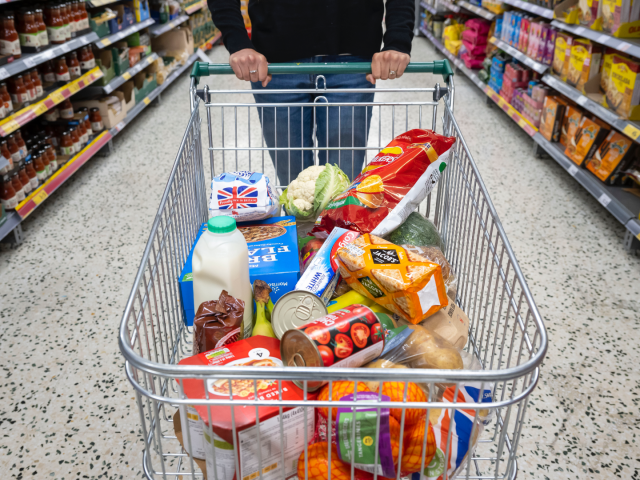Inflation for groceries has risen to the highest level since the 2008 financial crisis in Britain, meaning that supermarket shoppers will see an average of £380 tacked on to their annual bills.
The spiralling cost of living crisis in the United Kingdom has seen supermarket inflation hit 8.3 per cent in the past month, the highest level in 13 years, according to an analysis from Kantar.
The London-based data analytics and brand consulting firm found that inflation was rising the highest for milk, bread, butter, and dog food, though the price of hard liquor has actually fallen over the past month, The Guardian reported.
According to the research, sales at higher-end supermarket chains fell as consumers opted for cheaper options such as Aldi and Lidl where they purchased 12 per cent more store-brand products to keep costs down. In the three months leading up to June 12th, sales at Aldi and Lidl surged by 7.9 and 9.5 per cent respectively.
The head of retail and consumer insight at Kantar, Fraser McKevitt said: “The inflation number makes for difficult reading and shoppers will be watching budgets closely as the cost of living crisis takes its toll.
“Based on our latest data, the average annual grocery bill is on course to rise by £380. This is over £100 more than the number we reported in April this year, showing just how sharp price increases have been recently and the impact inflation is having on the sector.”
The latest evidence of rising inflation comes after the UK’s grocery trade body said price rises in the UK could hit 15% this summer – the highest level in more than 20 years. High inflation could last into the middle of next year, according to its report published last week.
Overall, the UK economy is heading towards 11 per cent inflation by the Autumn, according to projections from the Bank of England last week. The central bank, which admitted that it had “underestimated inflation,” said that it will continue to rise in October when the nation’s energy regulator Ofgem is set to raise the energy cap yet again, with some warnings predicting it could rise to £3,000.
Despite the wallet-crunching cost of living crisis, the supposedly Conservative government of Prime Minister Boris Johnson has steadfastly refused to cut taxes, previously arguing that they were necessary to pay down the massive debts incurred as a result of the government’s lockdown policies, and now claiming that providing tax relief will add to inflation.
Though the tax-burden is already at a 70-year-high, the government is set to impose another tax, this time on internet sales, which projections have forcasted that it will add £175 to the average household’s spending bills, The Telegraph reported.
Tom Clougherty of the Centre for Policy Studies and the Coalition for a Digital Economy, which is against the tax, has claimed that tax cuts would not necessarily add to inflation as the government claimed, if they were paired with interest rate hikes.
“I don’t think it would be inflationary, and any inflationary impact the tax cut did have, you would expect to be offset by a correspondingly tighter monetary policy from the Bank of England,” he said.
Follow Kurt Zindulka on Twitter here @KurtZindulka

COMMENTS
Please let us know if you're having issues with commenting.